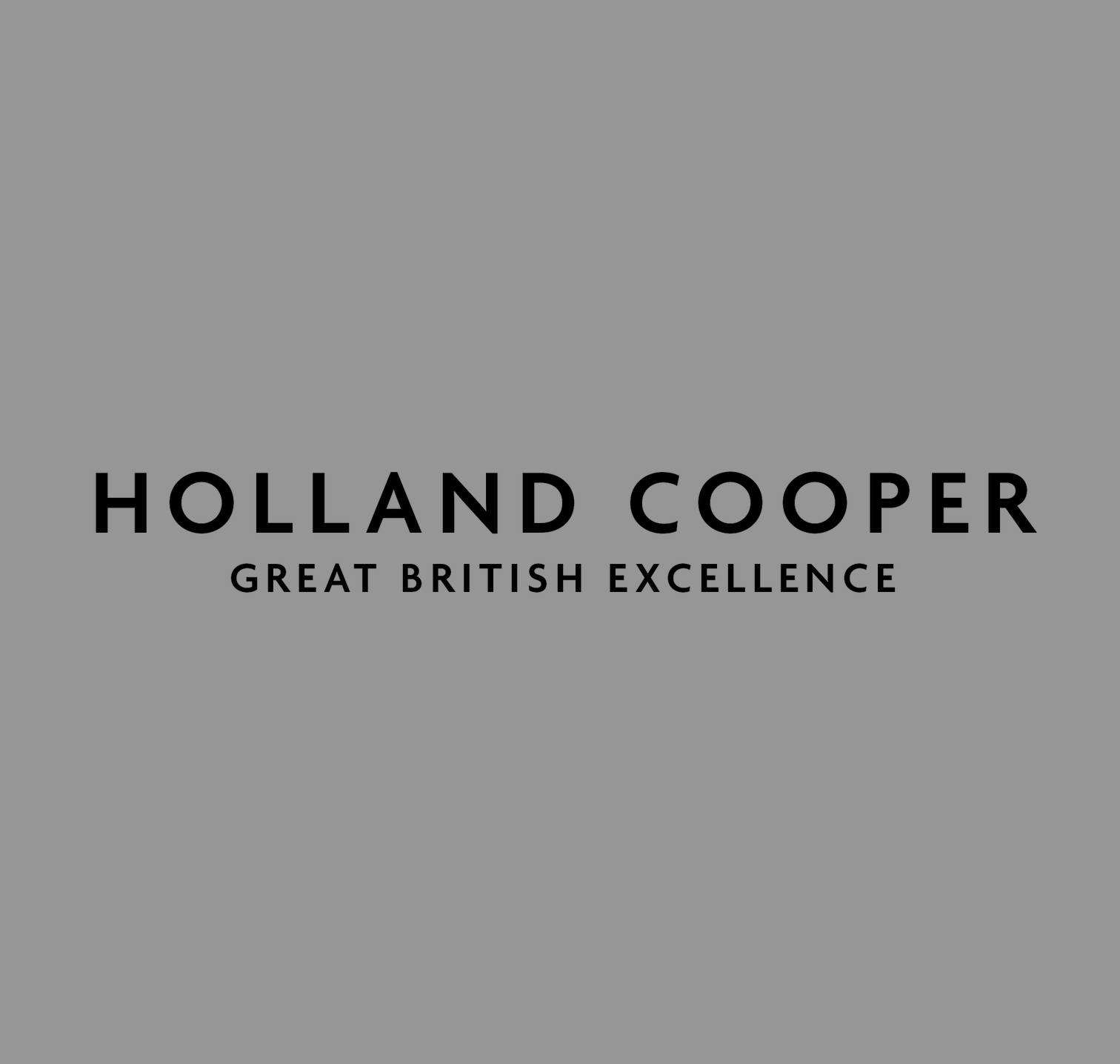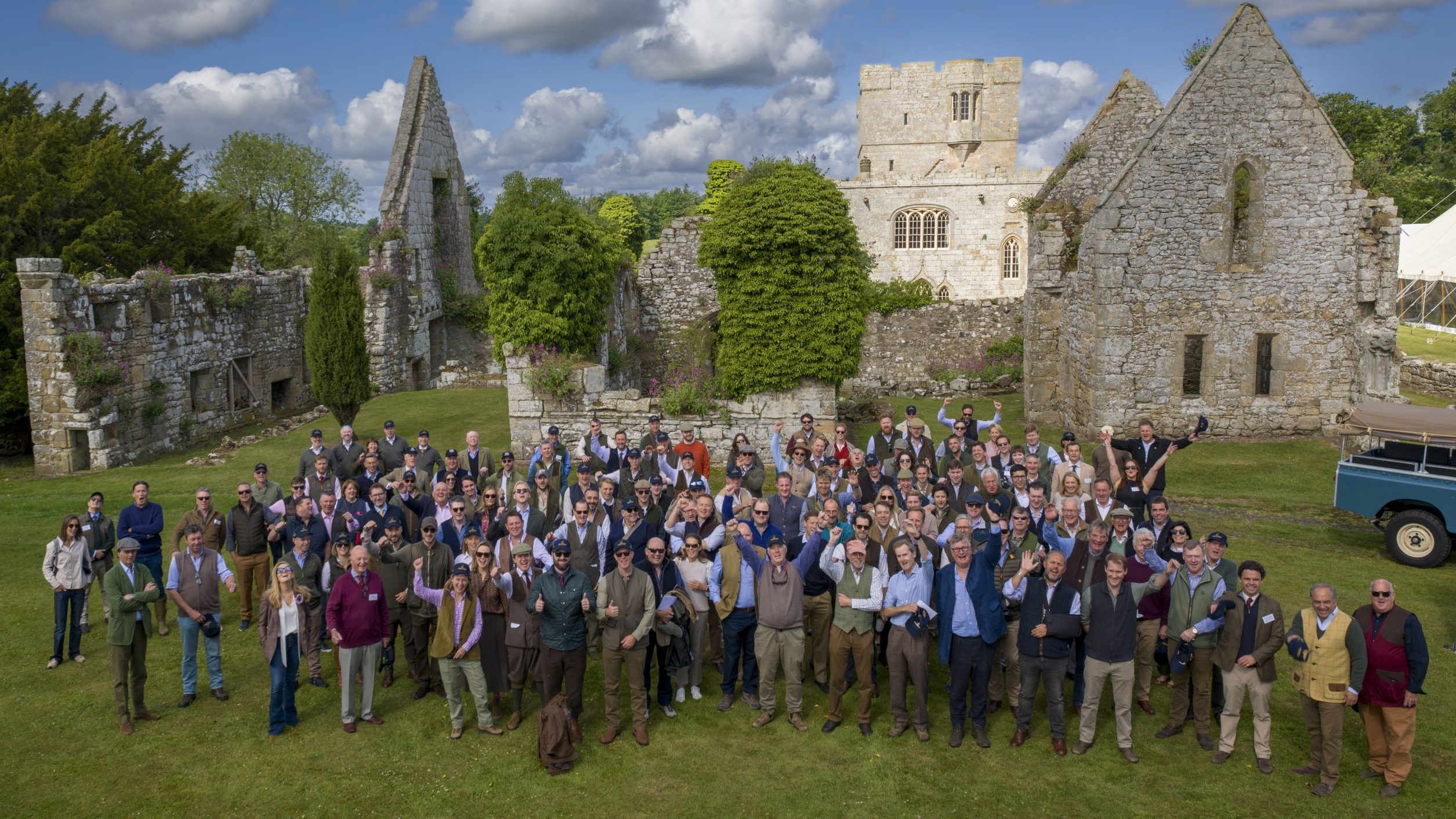Events
A new dawn?
This year’s Wild Salmon Connections conference marks a turning point for cross-border cooperation, and sees renewed commitments to tackle the wild salmon crisis
Would you like to appear on our site? We offer sponsored articles and advertising to put you in front of our readers. Find out more.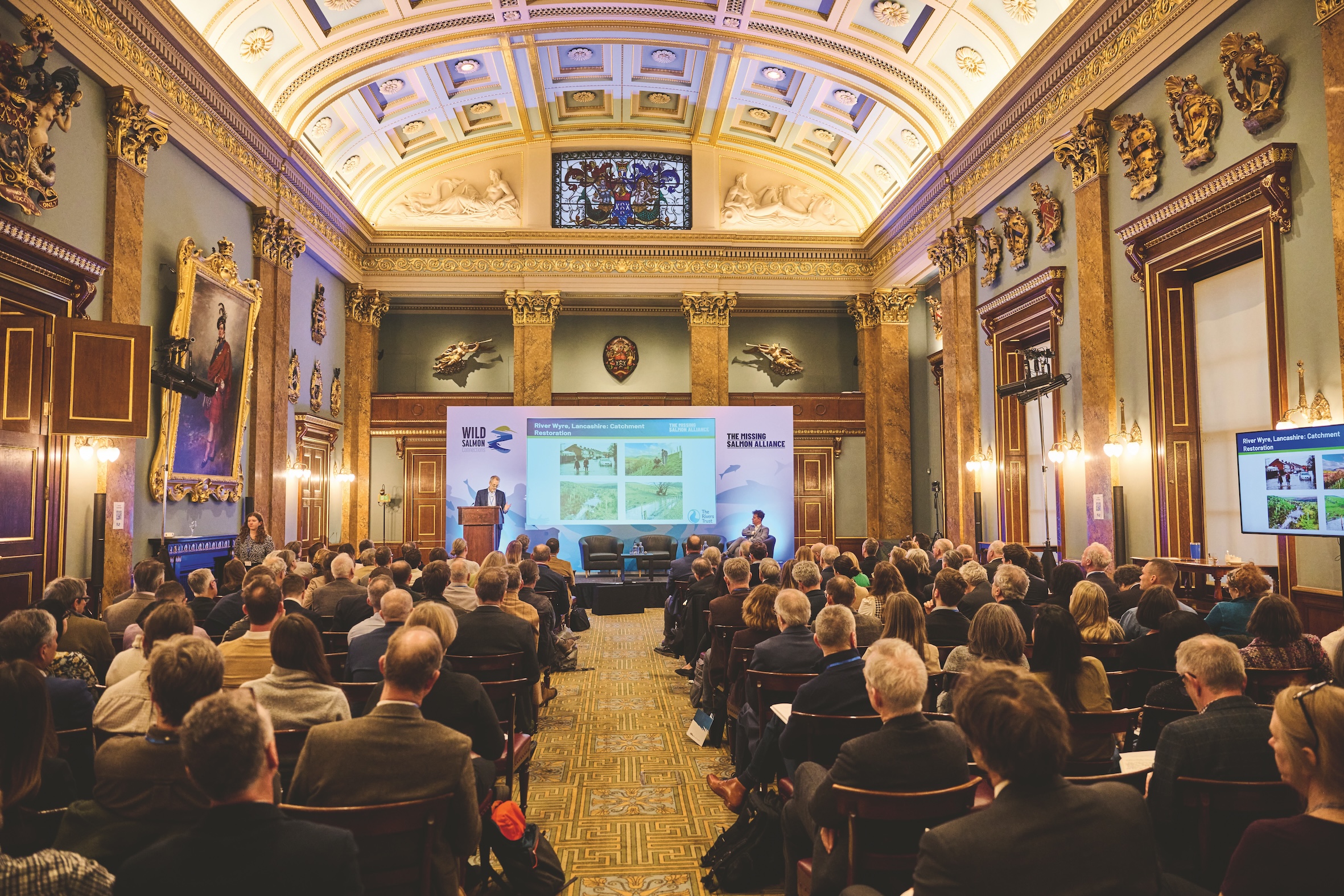
In January 2025, the world’s most significant international gathering of wild salmon conservation groups for many years came together in London at Fishmongers’ Hall, aligning efforts behind a renewed global commitment to conserve, protect and restore wild salmon across both the Atlantic and Pacific. The message: wild salmon are in crisis, but there is hope.
The event was organised by the Missing Salmon Alliance, a UK-group of conservation organisations made up of the Angling Trust, Fish Legal, Atlantic Salmon Trust, Game & Wildlife Conservation Trust, Fisheries Management Scotland, and The Rivers Trust, in partnership with The Pacific Salmon Foundation and Atlantic Salmon Federation (both based in Canada), Norwegian Salmon Rivers, and Long Live the Kings from the United States.
In addition, speakers and audience members attended from across the northern hemisphere to contribute to this huge collaborative effort to move salmon recovery into a higher gear.
The conference took place just over a year on from when the Atlantic salmon was declared an endangered species in Great Britain by the International Union for the Conservation of Nature (IUCN), with data indicating the trend of a continued decline. This story is echoed across the Atlantic. In the Pacific, 70% of salmon populations are below their long-term average.
A powerful short film voiced by actor Dominic West (The Crown; SAS: Rogue Heroes), opened the conference and made a plea to governments, regulators and industry – “Wild salmon are in crisis, but there is hope. We must commit to bold action, and it must start now.”
This was a key message repeated throughout the event – not to dwell on the many well-understood problems wild salmon face, but to highlight, share and inspire the solutions required to give them a better future.
Among the event’s keynote speakers were leading cultural representatives, senior economists, and government ministers. The event began, however, with a touching presentation from a group of schoolchildren who had taken part in the Thames Salmon School programme – an innovative, international educational project delivered as a collaborative effort across the Thames basin with the support of local river trusts and the Missing Salmon Alliance, which combines art and science to inspire the next generation to connect with rivers and wildlife.
It is based on The Salmon School installation, a project started by renowned American artist Joseph Rossano, which has travelled the world to raise awareness of the plight of wild salmon, including at COP26 in Glasgow and Balmoral.
Inspiring governments and industry to place far more value on wild salmon recovery was the conference’s core ambition.
Keynote speaker, Professor Sir Dieter Helm of Oxford University, who advises the UK and European governments on energy & climate; regulation, utilities & infrastructure; and natural capital & the environment, made clear that wild salmon must be seen as an essential part of our shared ‘natural capital’. He said:
“Renewable natural capital is the stuff that nature gives us for free and keeps on giving us for free forever, provided we don’t over-deplete it… a salmon stock is the obvious way to think about renewable natural capital. Provided we look after its environment, [and] provided we do the right things, then the next generation will have salmon.”
As well as making the economic case for wild salmon restoration, the event invited senior political figures.
Daniel Zeichner MP, UK Minister of State for Food Security and Rural Affairs; Mairi Gougeon MSP, Scottish Cabinet Secretary for Rural Affairs, Land Reform and Islands; and Andreas Bjelland Eriksen, Norway’s Minister of Climate and the Environment, all spoke at the event and agreed on the urgent need to do more to protect and restore wild salmon.
Their attendance coincided with the release of the Missing Salmon Alliance’s Wild Salmon Declaration and new set of high-level policy asks for England and Scotland. These are now being used to advocate for governments to do more to accelerate efforts to:
-
Enact appropriate legislation which puts wild salmon first
-
Make polluters pay
-
Ensure free access to cold, clean water
-
Have joined-up land management practices which reduce impacts on waterways
-
Improve wild salmon survival at sea, including achieving a proper understanding of the impact of fisheries bycatch
Potential solutions were also presented to reduce the highly-publicised impacts associated with industrial salmon farming, including pioneering approaches to closed containment technology which entirely separates farmed fish from wild fish, as well as mitigating the effects of hydropower dams, and achieving catchment-scale habitat restoration.
The importance of wild salmon to the peoples of the northern hemisphere was also powerfully communicated, underlining the fact that wild salmon recovery is not just an environmental and economic issue, but also a deeply cultural one.
Fawn Sharp, Quinault Tribal member and former President of the National Congress of American Indians, spoke of the profound importance of wild salmon to the cultural identity of First Nations peoples – something which was also echoed through stories shared from across the UK and Europe.
Alastair Fothergill OBE, the producer behind many of Sir David Attenborough’s nature documentaries, most recently Wild Isles which celebrated wildlife across the UK, including wild salmon, was also a keynote speaker.
In response to reports that the Danish government is challenging the UK’s ban on sandeel fishing (an essential prey species for wild salmon and other wildlife), he urged the UK government to hold firm:
“It’s a sad fact, though, that at the moment the Danish government are trying to appeal against it. Ninety per cent of our sandeel fishing is done by the Danes, and it’s all used to feed their pigs, their captive (farmed) salmon, and also, amazingly, to fire up their power stations. It’s extraordinary, and I really hope the British government stays strong.”
The Missing Salmon Alliance and its international partners are now working closer than ever before to ensure that the cultural, environmental and economic case for wild salmon recovery is at the top of the agenda for governments and businesses in the 21st century.
While significant challenges remain on the road ahead to achieving a thriving future for wild salmon, there has never before been a time when the key global players are so aligned in their strategies to get to that destination.
All presentations and speeches from the Wild Salmon Connections conference are available to watch online at missingsalmonalliance.org
Get the latest news delivered direct to your door
Subscribe to Fieldsports Journal
Elevate your experience in the field with a subscription to Fieldsports Journal, the premium publication for passionate country sports enthusiasts. This bi-monthly journal delivers unparalleled coverage of game shooting, fishing and big game across the UK and beyond.
Each issue offers a stunning collection of in-depth features, expert opinions and world-class photography, all presented in a timeless yet contemporary design.
Save 10% on shop price when you subscribe, with a choice of packages that work for you. Choose from Print & Digital or Digital only with each journal delivered directly to your door or via the app every other month, plus access to past issues with the digital back issue library.
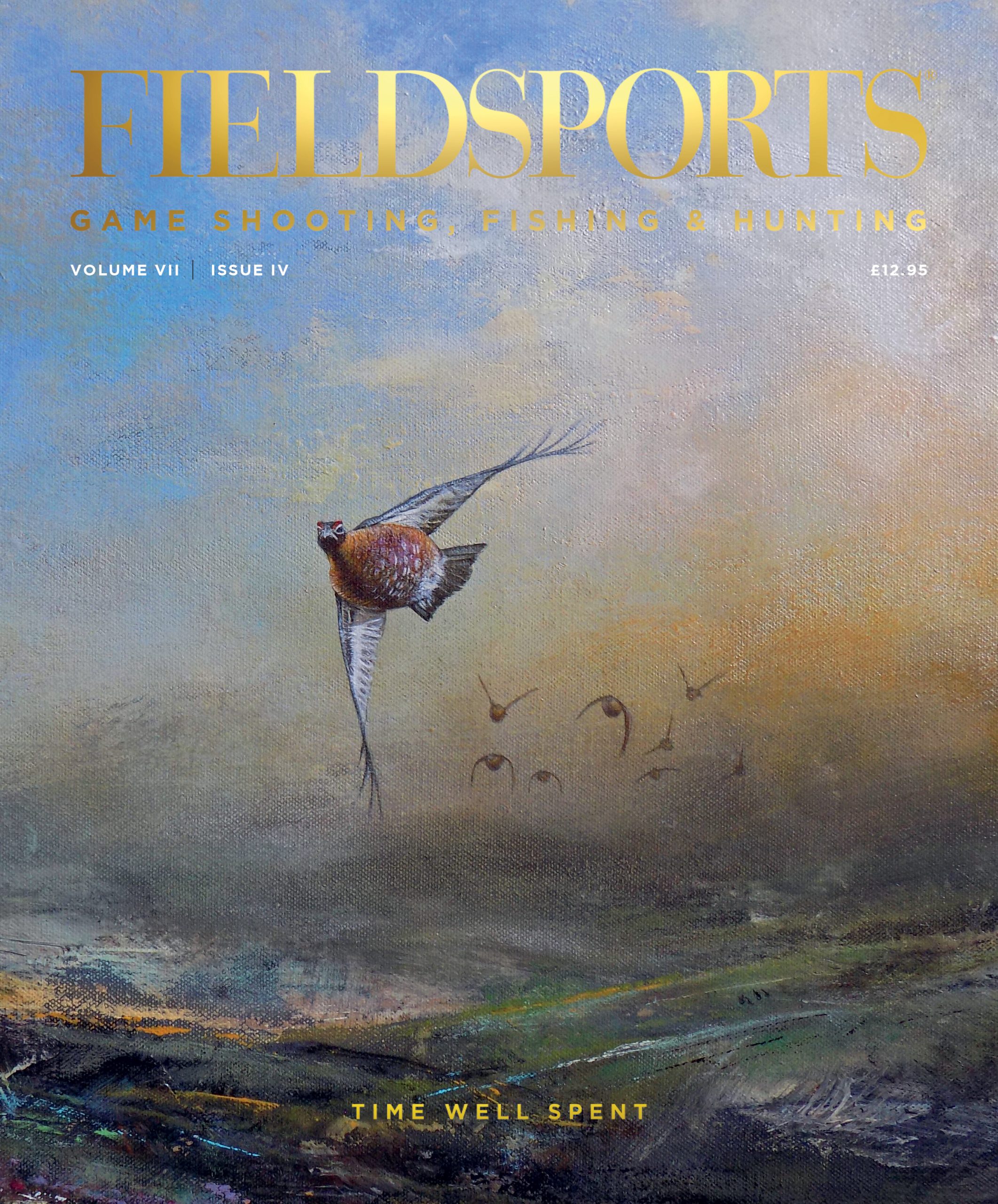
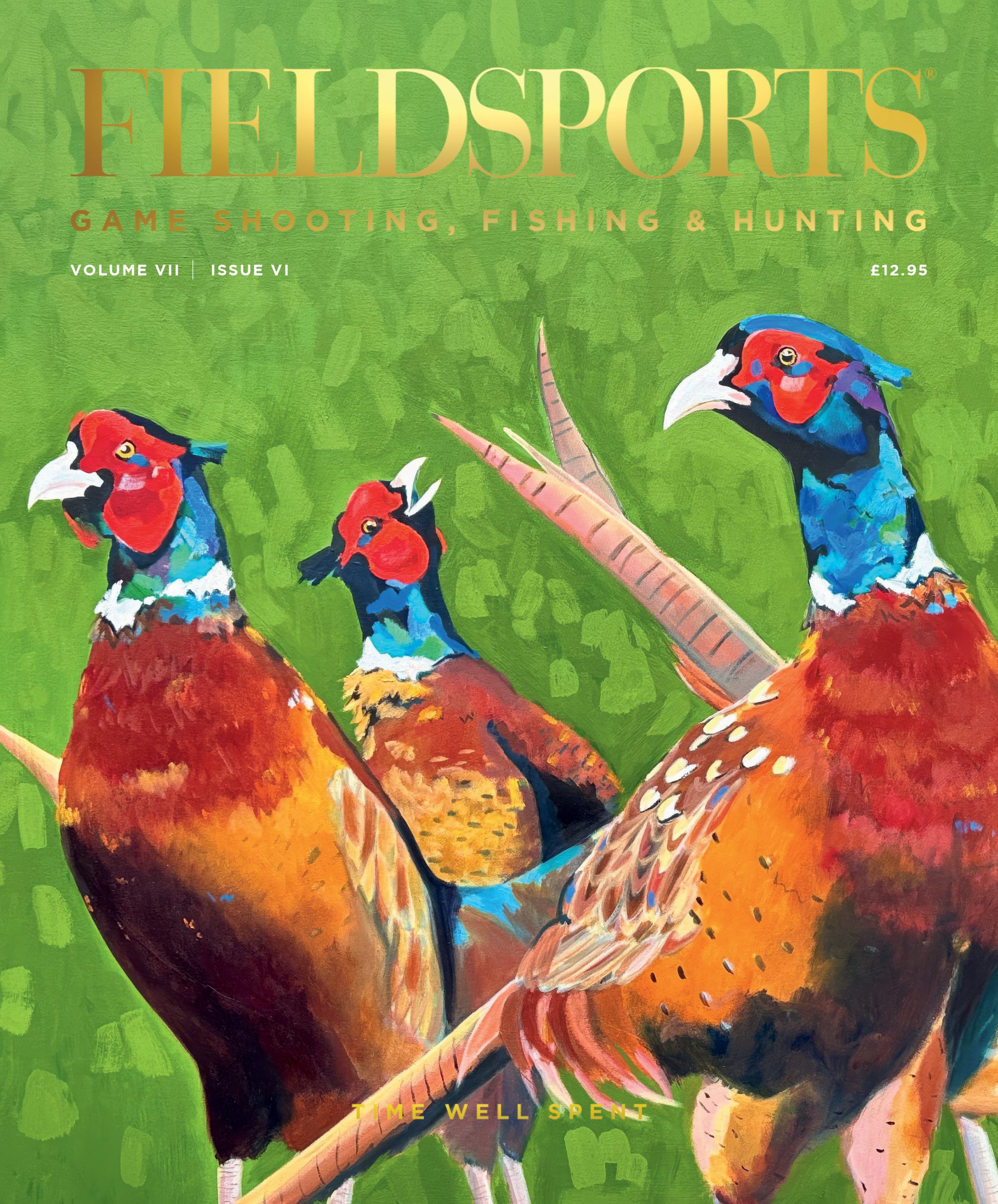
Manage Consent
To provide the best experiences, we use technologies like cookies to store and/or access device information. Consenting to these technologies will allow us to process data such as browsing behavior or unique IDs on this site. Not consenting or withdrawing consent, may adversely affect certain features and functions.
Functional Always active
The technical storage or access is strictly necessary for the legitimate purpose of enabling the use of a specific service explicitly requested by the subscriber or user, or for the sole purpose of carrying out the transmission of a communication over an electronic communications network.
Preferences
The technical storage or access is necessary for the legitimate purpose of storing preferences that are not requested by the subscriber or user.
Statistics
The technical storage or access that is used exclusively for statistical purposes.
The technical storage or access that is used exclusively for anonymous statistical purposes. Without a subpoena, voluntary compliance on the part of your Internet Service Provider, or additional records from a third party, information stored or retrieved for this purpose alone cannot usually be used to identify you.
Marketing
The technical storage or access is required to create user profiles to send advertising, or to track the user on a website or across several websites for similar marketing purposes.

